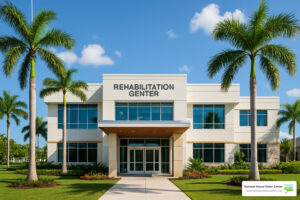
Gabapentin and Opiate Withdrawal—What You Need to Know Before You Detox
Learn does gabapentin help with opiate withdrawal symptoms, its benefits, risks, and usage tips before starting your detox journey.

October 11, 2017
Although two federal agencies gave several hundred nurse practitioners and physician assistants the right to prescribe a life-saving medication to help treat opioid withdrawal, dependence, and addiction in April 2017, many state laws will prevent these individuals from actually being able to prescribe this medication. The ability to prescribe the medicine could be monumentally helpful towards minimizing today’s severe opioid crisis, but unfortunately, nurse practitioners still can’t provide the medication in many states without the supervision of a doctor, and sometimes not at all.
Buprenorphine, and other drugs used to treat opioid addiction and dependence, have become instrumental in helping individuals overcome severe substance use disorders. According to the Substance Abuse and Mental Health Services Administration, buprenorphine can diminish the effects of withdrawal symptoms and cravings when used to treat a person who is dependent on opioids. The medication is especially helpful when used in conjunction with behavioral therapy, but many individuals need to at least start treatment with this medication during detox in order to begin the healing process.
Buprenorphine has other benefits as well, including:
Still, even with helpful medications like buprenorphine and behavioral therapies specifically created to treat opioid dependence and addiction, the opioid epidemic continues unabated in the United States. One way to help create real change is to give nurse practitioners and physician assistants more power in treating these issues.
These individuals are often the only ones practicing in rural areas where the opioid epidemic is most severe, and many of them do not charge as much as doctors do. This is one reason why Congress and other federal government agencies are attempting to allow these medical professionals to help any way they can.
Under Congress’ Comprehensive Addiction Treatment and Recovery Act, nurse practitioners and physician assistants now have the approval to seek a federal license to prescribe buprenorphine, which was before only provided to doctors. However, state laws are largely preventing many individuals in this position from doing so.
Currently, 28 states still prohibit nurse practitioners from prescribing this medication unless they are working with a doctor who has a federal license to prescribe the drug. In many cases, this is impractical as well as limiting.
Many small, rural towns may only have a nurse practitioner, and many residents may only be able to afford a nurse practitioner’s help as opposed to paying for a more expensive doctor’s visit. The limited scope of practice these professionals have, which is mostly based on state laws, is truly making it difficult for them to treat patients with this helpful medication.
But why are changes to these laws coming so slowly? Part of the problem is the doctors themselves who, in many cases, do not want competition from professionals providing inexpensive treatment. Sadly, this is part of the reason why individuals do not have access to buprenorphine.
Some still maintain that nurse practitioners and physician assistants do not provide care that is as helpful or adequate as a doctor’s care. However, many recent studies, including one published in 2015 by the Oxford University Press, have found that the outcome of care performed by physicians and nurse practitioners is actually very similar. As such, it may be time to put away antiquated ideas about the difference between physicians and other medical professionals.
Many people have argued about these issues for years, and state-mandated, scope of practice laws don’t seem likely to change any time soon. But with such a severe epidemic on our hands, now is as good of a time as any for change to occur.
If you or someone you know is struggling with drug addiction in West Palm Beach, give Summer House Detox Center a call at 800-719-1090 to schedule a FREE consultation. You can also visit us at 13550 Memorial Highway Miami, FL 33161. We are open 24 hours a day, 7 days a week.

Learn does gabapentin help with opiate withdrawal symptoms, its benefits, risks, and usage tips before starting your detox journey.

Discover how to choose the best methadone detox facility for safe, comfortable withdrawal and lasting recovery. Start your journey today!

Discover the best miami florida rehabilitation center options—compare services, programs, and tips for choosing your ideal path to recovery.
For immediate assistance, please call our Admissions Specialists at 800-719-1090.
Speak With A Qualified Addiction Specialist 24/7